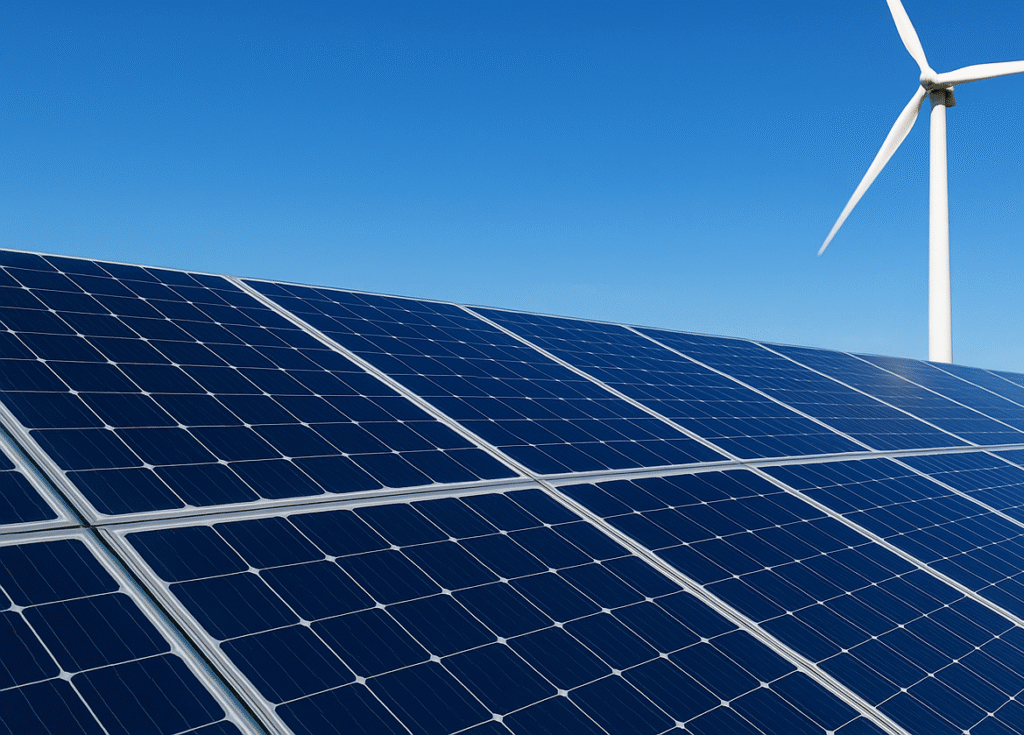How Solar Energy Is Fighting Climate Change

Climate change is no longer a distant issue. Rising global temperatures, stronger storms, and melting ice caps are now everyday realities. The good news is that we already have one of the most powerful tools to fight back: solar energy.
By harnessing the sun’s power, we can reduce our dependence on fossil fuels, lower greenhouse gas emissions, and build a cleaner, more sustainable world. Solar energy isn’t just a trend — it’s a long-term solution to one of the biggest challenges of our time.
If you’re just beginning your solar journey, you might enjoy learning how homeowners are cutting electricity bills by generating their own solar power in this helpful guide.
Solar Power Reduces Carbon Emissions
The burning of coal, oil, and natural gas remains the largest source of carbon dioxide (CO₂) emissions worldwide. Switching to solar power drastically cuts these emissions.
A typical home solar system can offset up to 100,000 pounds of CO₂ over 20 years — the same as planting more than 1,000 trees. According to the U.S. Environmental Protection Agency (EPA), solar energy systems produce 96% less carbon pollution over their lifetime compared to fossil fuels.
Every solar panel installed helps slow global warming, one household at a time.
Solar Energy Reduces Dependence on Fossil Fuels
Fossil fuels are not only harmful to the planet — they are also limited resources. Relying on them leads to price volatility, supply instability, and environmental degradation.
Solar power, on the other hand, is renewable, abundant, and sustainable. The sun provides more energy in one hour than the entire world consumes in a year.
Many companies are also transitioning to renewable energy. You can learn more about how warehouses and factories lower operational costs by switching to solar systems in this in-depth article.
By investing in solar — whether for homes, businesses, or community programs — we lessen our dependence on fossil fuels and move closer to a stable, clean energy future.
Solar Power Improves Air Quality
Burning fossil fuels releases pollutants such as sulfur dioxide and nitrogen oxides, which contribute to smog, acid rain, and respiratory illnesses. Solar energy produces electricity without emitting any of these harmful substances.
Cleaner energy means cleaner air, healthier communities, and lower healthcare costs. By replacing traditional power generation with solar, we create both environmental and public health benefits.
Solar Energy Supports Sustainable Growth
Solar energy benefits not just the environment but also the economy. The solar industry is one of the fastest-growing job sectors globally, employing more than 250,000 people in the United States alone, according to the Solar Energy Industries Association (SEIA).
From manufacturing and installation to maintenance and innovation, solar energy drives local economic growth and creates sustainable employment opportunities. As demand for clean energy continues to rise, its positive economic impact will only expand further.
Solar Technology Promotes Energy Resilience
Climate change has increased the frequency and intensity of natural disasters, putting immense pressure on traditional power grids. Solar systems, especially those paired with battery storage, provide reliable, decentralized power that keeps homes and businesses running even during outages.
This energy independence strengthens community resilience and ensures continuous access to electricity in critical times. Solar energy isn’t just clean — it’s dependable.
Solar Energy Helps Conserve Natural Resources
Traditional power generation consumes massive amounts of water for cooling and fuel processing. In contrast, solar photovoltaic (PV) systems require little to no water, making them far more sustainable.
By conserving water and reducing land degradation from mining and drilling, solar power helps protect ecosystems and natural habitats. This contributes to long-term environmental balance and resource preservation.
The Bigger Picture: Solar Power as Hope in Action
Every homeowner who installs solar panels and every business that makes the switch to clean energy contributes to the fight against climate change. Solar power represents more than technology — it represents responsibility, progress, and hope.
As solar energy becomes more affordable and accessible, it empowers individuals, communities, and industries to take meaningful action toward a sustainable future.
If you’re curious about saving on installation costs, explore how businesses can take advantage of tax incentives and government rebates to make solar more affordable in this detailed resource.
Conclusion: Your Role in the Solar Movement
Climate change affects everyone, but the solution starts with individual choices. By choosing solar energy, you’re not only reducing your carbon footprint but also supporting a global shift toward sustainability and clean living.
It’s time to turn sunlight into lasting impact. The transition to solar power is one of the most practical and powerful ways to protect our planet for future generations.
If you’re ready to explore your options, you can compare installers and request a free solar quote from trusted local experts through this easy solar quote tool.